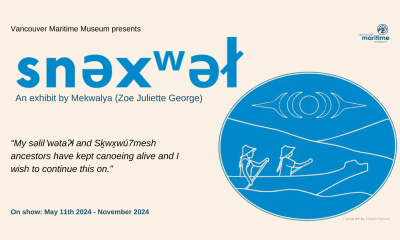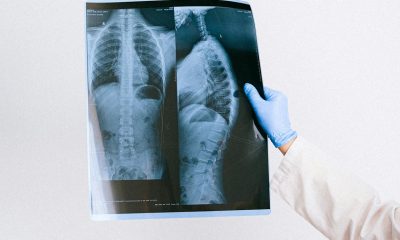Lifestyle
Why people choose medically assisted death revealed through conversations with nurses

Canada is the first country to permit nurse practitioners to assess for medically assisted dying eligibility and to provide it. (Shutterstock Photo)
Since Canada legalized Medical Assistance in Dying (MAiD) in 2016, as of Oct. 31, 2018, more than 6,700 Canadians have chosen medications to end their life.
Canadians who meet eligibility requirements can opt to self-administer or have a clinician administer these medications; the vast majority of people choosing MAiD have had their medications delivered by physicians or nurse practitioners. Canada is the first country to permit nurse practitioners to assess for medically assisted dying eligibility and to provide it.
The precise meaning and implications of MAiD — in particular, who can request medical assistance in dying in Canada — is still evolving through court rulings. Quebec’s Supreme Court recently struck down the reasonably foreseeable death requirement under the Criminal Code and the end-of-life requirement under Quebec’s Act Respecting End-of-Life Care.
Without the requirement of a reasonably foreseeable death, it is likely that other legal challenges will occur to extend assisted dying to other groups such as those whose sole underlying condition is severe mental illness.
Involvement of nurses
Our research has explored how the nursing profession is regulating the new area of responsibility towards medically assisted dying and how nursing ethics might guide policy and practical implications of nurses’ experiences.
Current legislation guards the right of health-care providers to conscientiously object to participation in MAiD. Nurses who do conscientiously object have a professional obligation to inform their employers of that objection, to report requests for MAiD, and to not abandon their clients. They also must ensure that their choices are based on “informed, reflective choice and are not based on prejudice, fear or convenience.”
The nurses who surround the process of medically assisted dying are an important source of insight into the complex and nuanced conversations our society needs to have about what it is like to choose, or be involved with, this new option at the end of life, and to be involved in supporting patients and their families toward death with compassion.
Impoverished stereotypes
Our most recent research involved interviews with 59 nurse practitioners or registered nurses across Canada who accompanied patients and families along the journey of medically assisted dying or who had chosen to conscientiously object. Nurses worked across the spectrum of care in acute, residential and home-care settings.
During our research, and as we followed media stories, we became aware that as with other morally contentious issues, involvement in MAiD has often been discussed in one-dimensional ways: We noted stereotypes of health-care providers and patients who heroically conquer suffering, death and the system by taking control of what might otherwise have been a difficult and prolonged dying. We also observed caricatures of oppositional or religious right-wing persons and institutions who stand in the way of compassion and dignity.
Neither of these perspectives do justice to the complexities of MAiD as it is enacted. Without an understanding of those complexities, it is difficult for patients and families to make good decisions.
Nurses accounts of MAiD
Nurses told us that medically assisted dying is about so much more than the act itself. Medically assisted dying is a conversational journey with patients that lasts weeks or even months.
These discussions patients have over time with skilled and compassionate health-care professionals help to determine whether this is what they really want, or whether there are other options that might relieve their suffering.
Conversations between patients and their families are essential to negotiating a common understanding and moving forward together.
Indeed, evidence has suggested that these conversations, when experienced as meaningful by patients, may help to alleviate the suffering that leads to the request for a medically assisted death. This is particularly true if the suffering has arisen from the sense of isolation.
If and when patients decide to proceed with MAiD, then conversations are required to ensure that all of the organizational details (what, where, when, how) are patient-centred choices and that those who are involved know the part they are to play. After the act of medically assisted dying, it is compassionate conversations that support families in navigating an uncharted bereavement process.
So yes, medically assisted dying is about supporting autonomy, but it is also about understanding that autonomy exists within, and is shaped by, our constellation of relationships. We need to be talking more about the essential nature of what it means to have a good death.
Complex reasons to choose death
MAiD is often spoken of as the definitive intervention that ensures control over the alleviation of suffering. But, we have learned that MAiD can also be chosen as the antidote to a system that fails in compassion or equitable palliative care access.
It may seem the perfect solution for rural and remote patients who want a home death but are unable to find sufficient palliative care in their context.
It may seem the best option for patients who do not want to enter what they perceive to be the dehumanizing environments of residential care.
We heard a story of one man who had overstayed the time allowed on a palliative care unit. His doctor was a conscientious objector to medically assisted dying so each time health professionals planned to transfer him to residential care, the man asked for a medically assisted death. In doing so his stay in palliative care was assured.
We heard other stories of patients who were not willing to tax their caregivers any longer, particularly if those caregivers sent cues that they were exhausted.
So, while medically assisted dying does promise control over people’s suffering, it can also be used as a form of resistance to a challenging system or depleted support.
We need to plan ways to ensure that inequitable access or lack of caregiving networks do not become the default reasons for requesting a medically assisted death.
Deeply impactful
Nurses emphasized how important it is to have preparatory conversations repeatedly. Organizing an assisted death is labour-intensive for all involved; it requires thoughtful and detailed planning within the care system and among families and support networks.
Often the first time that patients and families hear a detailed explanation of the process is when the nurse or the physician first assesses eligibility.
Nurses said it is not uncommon for patients to experience uncertainty, to vacillate in their decision around an assisted death, or to experience fear at the moment of death.
It is tough to talk about your uncertainty when so many have invested time and energy into planning your death. At the time of assisted death, nurses and physicians go to extraordinary lengths to ensure a “good death” by normalizing the process, fulfilling patient wishes and providing exemplary clinical care.
Despite all of this, the death is often deeply impactful because it is so different than the death we have known where people gradually fade away.
Persons receiving medically assisted death are fully there one minute, and gone the next.
Within minutes they go from talking, to unconscious, to a grey pallour that signifies death, and this “greying” affects even seasoned health-care providers. The death can provoke an array of overwhelming emotions in health-care providers and families alike, both positive and negative.
With the changing landscape of medically assisted dying in Canada, the need for reflective conversations becomes ever more urgent. We need to better understand how medically assisted dying changes the nature of death to which we have become accustomed and how those changes impact all those involved.
———
This article is republished from The Conversation under a Creative Commons license. Disclosure information is available on the original site. Read the original article:
https://theconversation.com/why-people-choose-medically-assisted-dea





















